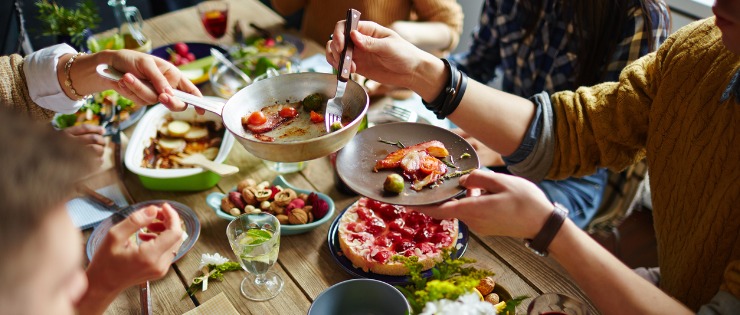
The link between what we eat and cancer is a bit of a mystery but researchers are learning more and more every day. One particular food doesn’t necessarily cause cancer, nor does another food prevent cancer. Rather it’s the balance of these foods and overall eating pattern over our lifetimes that will determine the path of cancer. This means eating less of the foods that are known to increase the risk of cancer and more of those that may help to prevent cancer.
The power of diet in relation to cancer is that it is one of the few factors we can actually control. The others are smoking, our weight, alcohol intake, sun exposure and physical activity levels. In fact it’s believed that more than 70 percent of someone’s risk of getting cancer is from factors within their control. The remaining factors such as genetics and our environment actually play a much smaller role than was once believed.
Some cancers have a stronger relationship with what we eat, such as lung cancer, breast cancer, prostate cancer and cancers of the digestive system such as bowel cancer.
These are the current dietary recommendations to reduce the risk of cancer:
1. Eat more variety of foods from the five food groups
These foods have been known for a long time to help decrease your risk of cancer, particularly those of the digestive system (mouth, stomach, bowel)
They include fruits, vegetables, wholegrains and high fibre cereals (such as rolled oats, brown rice), lean meat and poultry, fish and seafood, eggs, nuts and seeds, tofu, legumes and lentils and reduced fat dairy products.
2. Eat more healthy fats
The Mediterranean diet or eating pattern has been linked with a lower incidence of cancer. It’s believed that one of the reasons is for its higher intake of healthy fats from sources such as oily fish (salmon, tuna, trout, sardines, and anchovies), extra virgin olive oil, avocado nuts and seeds.
3. Maintain or achieve a healthy weight
4. Avoid ultra-processed foods
5. Avoid processed meat
They have been shown to increase the risk of bowel cancer
They include hot dogs, ham, bacon, some sausages and burgers.
6. Reduce your intake of red meat
There is evidence too much red meat can increase your risk of bowel cancer as well
Red meat includes beef, veal, lamb, pork and kangaroo
Aim for no more than 700g raw (or 500g cooked) red meat over a week
Links to references:
https://www.health.harvard.edu/cancer/cancer-and-diet-whats-the-connection
https://www.betterhealth.vic.gov.au/health/conditionsandtreatments/cancer-and-food